Top 20 AI Leaders Shaping the Future in 2026
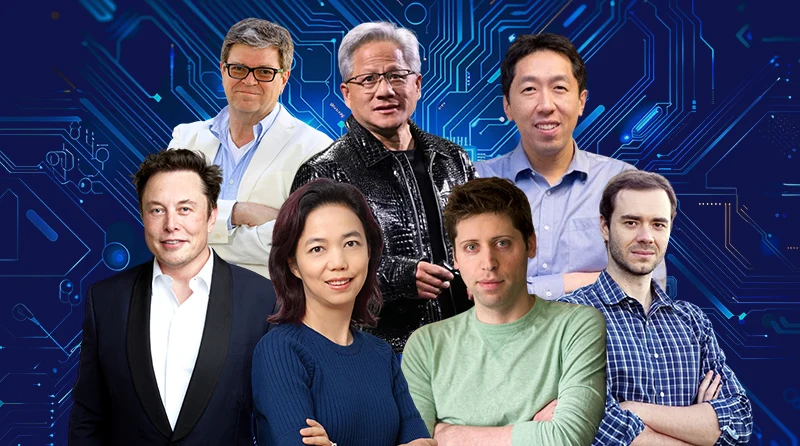
From 9% in 2023 to 16% in 2024—the number of companies running fully modernized, AI-led processes has nearly doubled in just one year, according to Accenture. These AI-driven organizations are also reaping substantial rewards, earning 2.5x more revenue than their peers.
Behind this surge are visionary AI leaders shaping the future of artificial intelligence. They’re not just building tools—they’re transforming how people work, make decisions, and interact with the world.
So, who are the top minds powering today’s most advanced AI models? What are they building—and what can we learn from them? Let’s dive into the Top 20 Leaders in AI redefining our future.
Top 5 AI Industry Leaders
Let’s highlight the five visionaries who are currently at the forefront of artificial intelligence and have defined its trajectory:
| Leader | Position | Key Contribution |
|---|---|---|
| Geoffrey Hinton | Professor Emeritus, University of Toronto Google Brain Advisor |
Pioneer of deep learning Revived neural networks, earning a Turing Award |
| Andrew Ng | Founder – DeepLearning.AI, Co-founder – Coursera | Democratized AI education globally |
| Elon Musk | CEO, xAI & Tesla | Developed cognitive AI at xAI and neural networks for Tesla’s autonomous vehicles |
| Demis Hassabis | CEO & Founder, DeepMind | Created AlphaGo Solved protein folding with AlphaFold, aiding science |
| Sam Altman | CEO, OpenAI | Spearheaded the development of ChatGPT |
Top 20 AI Leaders: The Complete List
These are the topmost influential people in AI today – scientists, entrepreneurs, and visionaries who decide how AI is used worldwide.
1. Geoffrey Hinton: Top Artificial Intelligence Researchers

Position & Company: Professor Emeritus at the University of Toronto and Google Brain Advisor
It was his research on neural networks that set the stage for the revolution AI brought about. His work changed how machines “sense” and “understand” the world.
Why He Matters in 2026: Hinton is collaborating with labs working on upcoming AI tools to ensure safer use of this technology. His studies continue to guide breakthroughs in neural networks.
Notable Fact: Although he was one of the main architects of this technology, Hinton is now becoming increasingly concerned about the risks associated with AI’s widespread use.
You Might Be Interested In: Godfather of AI Geoffrey Hinton Warns: The Future of Humanity Is at Risk
2. Andrew Ng
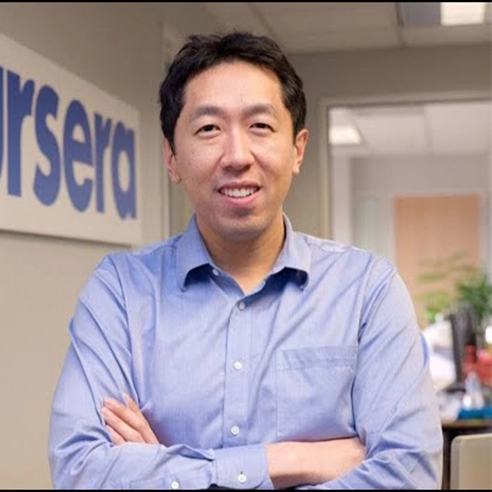
Position & Company: Founder – DeepLearning.AI, Co-founder – Coursera, Founding Lead – Google Brain
Ng’s online platforms, Coursera and DeepLearning.AI, have opened the doors to learning for anyone with internet access. His role in Google Brain also led to remarkable advancements in deep learning.
Why They Matter in 2026: Ng supports numerous AI startups trying to develop practical applications using AI. His educational content bridges the gap between the demand for AI talent in the task force and the lack of budget-friendly learning resources.
Notable Fact: Andrew himself reviews many of the AI courses on his platforms to ensure the focus remains on practical, hands-on training.
3. Elon Musk
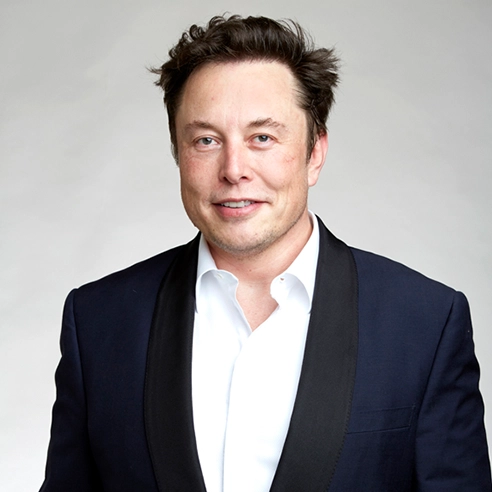
Position & Company: CEO of xAI, Tesla, and SpaceX
Using AI to solve real-world problems, Musk changed transportation with autonomous self-driving vehicles. In the field of cognitive AI, his AI assistant Grok is designed to answer complex queries using human-like reasoning, a groundbreaking development.
Why They Matter in 2026: Musk’s push for maintaining ethical standards at xAI, addressing bias and safety issues, helps in establishing trust in AI
Notable Fact: Musk named his AI assistant Grok after a character in a sci-fi novel, Robert A. Heinlein’s “Stranger in a Strange Land”, where the term “grok” means “to deeply understand.”
4. Demis Hassabis

Position & Company: CEO, Google DeepMind and Isomorphic Labs
DeepMind, under the leadership of Demis Hassabis, developed AlphaFold—an AI system that cracked a 50-year scientific challenge: predicting protein structures. The model has mapped over 200 million proteins, accelerating breakthroughs in biology and medicine. Hassabis also claimed that AI May Cure All Diseases in 10 Years.
Why They Matter in 2026: His Isomorphic Labs has pioneered AI-driven drug designing. Those drugs have now entered clinical trials.
Notable Fact: Hassabis’ work was recognized with the 2024 Nobel Prize in Chemistry.
5. Sam Altman
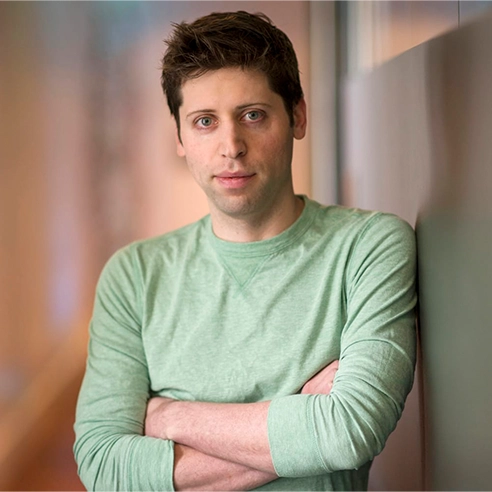
Position & Company: CEO, OpenAI
At the helm of ChatGPT, the face of generative AI today, Altman made AI available as a tool for business, education, and everyday tasks. His work was instrumental in turning large language models from research projects into widely used products.
Why They Matter in 2026: He is now directing global efforts around AI safety and regulation, influencing how governments and tech companies handle AI’s risks in the coming days.
6. Yann LeCun

Position & Company: Chief AI Scientist, Meta
His work laid the foundation for convolutional neural networks (CNNs), the technology behind how AI “sees” and understands images. CNNs are used in facial recognition, medical imaging, and photo tagging on Facebook and Instagram.
Why They Matter in 2026: He is now working to develop AI models that can learn like humans. He calls them “autonomous AI.”
Notable Fact: He won the prestigious Turing Award in 2018.
7. Andrej Karpathy
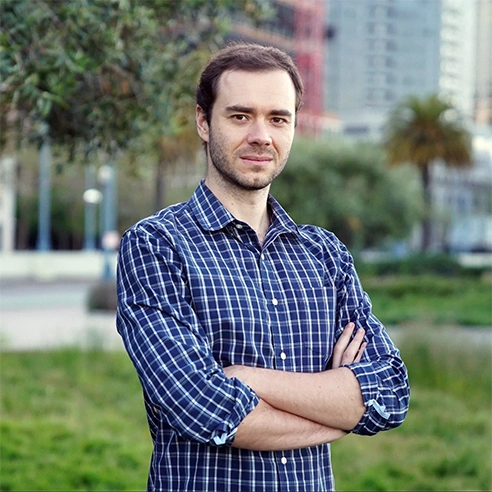
Position & Company: Founder – Eureka Labs, Former Senior Director of AI – Tesla, Former Research Scientist – OpenAI
One of the top artificial intelligence researchers, Karpathy, was at the forefront of the team that gave rise to Tesla’s self-driving technology, training AI systems to “see”. At OpenAI, he contributed to designing tools that generate captions for images.
Why He Matters in 2025: In 2024, he launched the education platform named Eureka Labs to teach students how to build LLMs, helping the next generation code with confidence.
Notable Fact: Karpathy was recognized as one of MIT Technology Review’s Innovators Under 35.
8. Fei-Fei Li
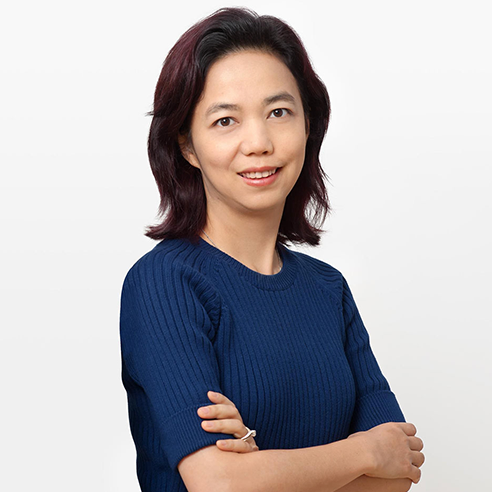
Position & Company: Co-Director – Stanford Human-Centered AI Institute, Professor of Computer Science
Li created ImageNet, the gigantic database of annotated photographs that enables computers to learn what things look like and recognize images. This paved the way for facial recognition and ultimately towards self-driving cars that can “see” the road.
Why She Matters in 2025: Li advocates fair and safe use of AI and promotes inclusiveness in AI. This is crucial for making this technology useful for everyone, avoiding biased algorithms.
Notable Fact: Li started her journey in academia with Physics.
9. Yoshua Bengio
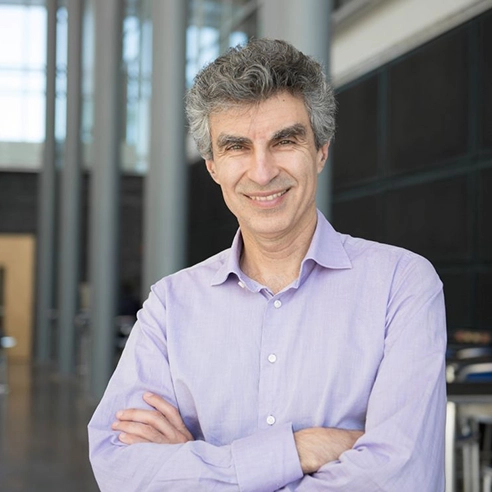
Position & Company: Professor – Université de Montréal, Scientific Director – MILA
Bengio’s research on neural networks led to deep learning systems that power speech recognition and translation technologies globally.
Why They Matter in 2026: Bengio tackles one of the toughest challenges AI faces today – how to make it trustworthy. His research at MILA looks into why AI makes certain choices. It can make AI chatbots, assistants, or fraud detectors more reliable.
Notable Fact: Along with LeCun, Bengio also received the Turing Award in 2018
10. Cassie Kozyrkov

Position & Company: Former Chief Decision Scientist at Google, Founder – Data Science Mindset
Kozyrkov led the way for decision intelligence, simplifying complex data for businesses. It enables informed choices guided by data science, improving inventory tracking and sales predictions.
Why They Matter in 2026: Her studies guide Fortune 500 companies like Walmart to boost their operational efficiencies with data analytics.
Notable Fact: Kozyrkov has a unique academic background, spanning mathematical statistics, psychology, and neuroscience.
11. Jeff Dean
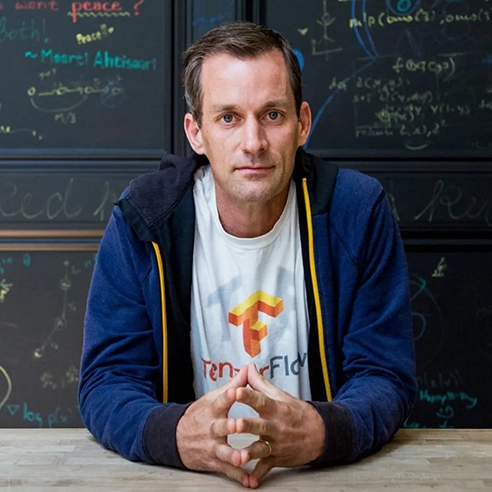
Position & Company: Senior Fellow and Former Google AI Chief
Jeff Dean co-founded Google Brain, the team that built TensorFlow. AI developers use this open-source tool universally to create AI programs, including image recognition and language translation. Dean also contributed to MapReduce, which enables Google to analyze huge amounts of data in no time using AI. This large-scale data processing is used in Google’s Search, YouTube, and other services.
Why They Matter in 2026: Dean’s team is now working on creating AI that can understand both a photo and its caption. This allows AI to interpret images better, find more accurate results in Search engines, assist users with vision impairments, and even detect misleading content that combines images with deceptive text.
Notable Fact: The “Jeff Dean Facts” are jokes that are the coding-world equivalent of Chuck Norris jokes, such as “Jeff Dean once bit a spider, the spider got C++ readability.”
12. Ian Goodfellow

Position & Company: Director of Machine Learning, Anthropic
Goodfellow invented GANs (Generative Adversarial Networks). It gives AI the capability to generate realistic images and audio, including photos, artwork, voice clips, and even videos for ads or movies.
Why He Matters in 2025: Since his technology can be used to create even deepfakes, Goodfellow is committed to ensuring the responsible use of AI.
Notable Fact: Goodfellow came up with the concept of GANs during a late-night debate at a bar, proving that big ideas can strike anywhere, at the most unexpected moments.
13. Jensen Huang
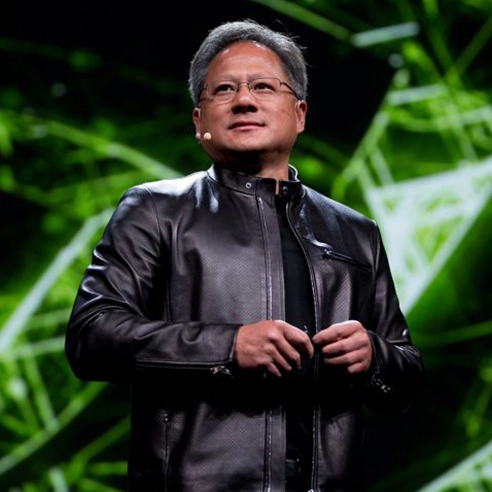
Position & Company: Co-founder and CEO, NVIDIA
Huang positioned NVIDIA as the go-to company for AI hardware. Its graphics processing units (GPUs) are designed to accelerate the training process of AI models, so that smarter systems can be built faster.
Why He Matters in 2025: Huang’s new chips, like the Blackwell Ultra series, are set to handle growing industry demands on AI. His hardware stands as the backbone of next-gen AI.
Notable Fact: Huang is famous for wearing his trademark leather jacket in all his public appearances, irrespective of weather conditions.
14. Clément Delangue

Position & Company: CEO and Co-Founder, Hugging Face
Delangue’s platform, Hugging Face, offers thousands of open-source AI models, demo applications, and datasets. Its Transformers library is the go-to resource for developers building complex AI apps.
Why He Matters in 2025: His platform sparks innovation, leading to the development of smarter AI tools, like customer service bots or writing aids, without the need for expensive proprietary software.
Notable Fact: The name “Hugging Face” is inspired by the emoji, and the company was initially created as a chatbot for teenagers.
15. Anima Anandkumar
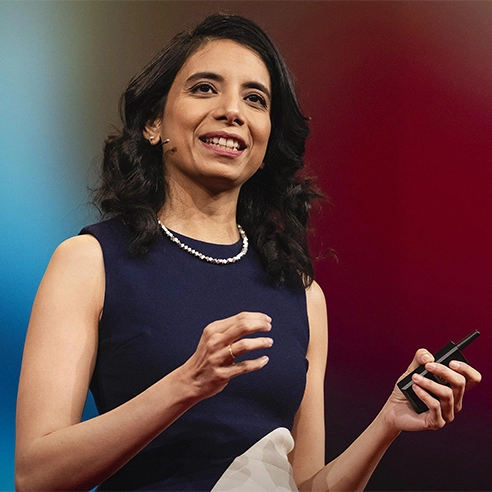
Position & Company: Bren Professor – Caltech, Director of Machine Learning Research – NVIDIA
Anandkumar created tensor methods. These are mathematical tools that improve how AI processes data. These methods enhance AI’s data processing abilities for tasks like weather forecasting or even detecting medical conditions.
Why She Matters in 2025: Anandkumar’s research powers faster scientific simulations. It creates possibilities for the reliable use of AI in critical real-world projects, including hospital diagnostics or financial predictions.
Notable Fact: Anandkumar is well-known for supporting underrepresented talents in STEM.
16. Mustafa Suleyman
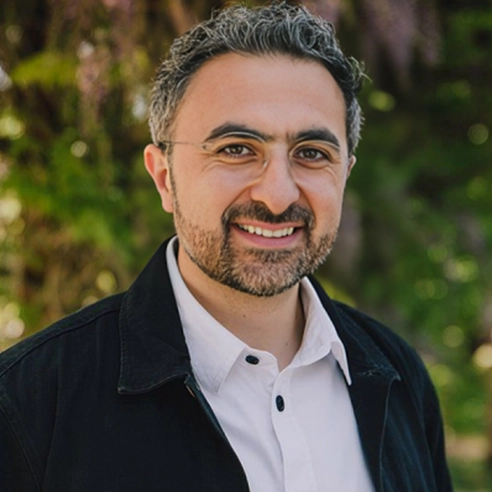
Position & Company: CEO – Microsoft AI, Former CEO and Co-founder – Inflection AI, Former Co-founder – DeepMind
Suleyman assisted in developing DeepMind’s AlphaGo, the AI that defeated a world champion in the board game Go. This achievement established AI’s ability to tackle complex challenges.
At Inflection AI, he created Pi, short for “personal intelligence,” a chatbot with the ability to understand emotions and respond with empathy. It aimed to offer customized assistance – a landmark in conversational AI.
Why He Matters in 2025: In 2024, after Microsoft acquired Inflection AI, Suleyman became the CEO of its AI division. He now works towards integrating emotional intelligence with Microsoft’s products like Copilot.
Notable Fact: Suleyman took a strong public stand against the use of AI in military applications.
17. Lex Fridman

Position & Company: AI Researcher, MIT, Podcast Host
Fridman’s podcast, featuring top AI experts and global leaders, makes complex AI topics easy to grasp. A study he authored at MIT on autonomous cars was praised by Elon Musk.
Why He Matters in 2025: Fridman’s research focuses on how machines can better understand humans and respond to their needs effectively. His podcast promotes awareness about AI’s benefits and risks, guiding people in making smarter decisions about its use.
Notable Fact: Fridman, a jiu-jitsu practitioner, compares the discipline needed in martial arts to the precision that AI research demands.
18. Dario Amodei

Position & Company: CEO and Co-founder, Anthropic
Amodei developed “Constitutional AI” to train Claude, Anthropic’s AI assistant. It incorporates safety rules directly into the AI to prevent it from generating harmful or biased answers.
Why He Matters in 2025: Amodei’s work aims to make AI safe and easy to control. It is critical that policymakers look for AI tools that are not just powerful but also reliable and responsible.
Notable Fact: Amodei started his journey with theoretical Physics and later cofounded Anthropic with his former OpenAI colleagues who shared his concerns on transparency in AI.
19. Timnit Gebru

Position & Company: Founder and Executive Director, Distributed AI Research Institute (DAIR)
Gebru’s research showed AI algorithms can reflect societal biases, such as cases when facial recognition misidentified people from certain ethnic backgrounds. This is crucial as a 2024 Queen’s Business School study warns that “The developers and designers of GenAI must understand that GenAI technology should be developed with ethical values so that there is no harm to individuals, organizations or society.”
Why She Matters in 2025: DAIR’s work influences policies that protect against discrimination. It helps improve systems in job recruitment, loan approvals, and more.
20. Christopher Manning

Position & Company: Director – Stanford AI Lab, Professor of Computer Science and Linguistics, Stanford University
Manning’s research in Natural Language Processing (NLP) helped in developing models like BERT, on which many of the modern language AI systems are based. His work helps search engines, chatbots, translation apps, and other tools to process human speech.
Why He Matters in 2025: Manning’s research continues to facilitate how language models process grammar, meaning, and context. It makes AI-generated text accurate and more human-like.
Notable Fact: Manning put forward Manning’s Law, which has held true throughout the evolution of large language models like GPT.
Emerging AI Leaders to Watch
1. Aileen Gemma Smith
Position & Company: CEO, Vizalytics
Reasons to Watch: Leading the development of contextual AI tools for cities and government agencies, Smith’s work improves crisis response. It helps anticipate delays, plan optimal routes, and reduce congestion in public transit networks in emergency situations.
2. Chandhu Nair
Position & Company: SVP, Data, AI & Innovation, Lowe’s
Reasons to Watch: Nair’s team used predictive analytics based on actual consumer behavior. They implemented digital twins to simulate store layouts and predict customer flow. As a result, Lowe’s was able to enhance workforce planning, stock availability, and in-store navigation, reducing product outages, shortening checkout times.
3. Kate Crawford
Position & Company: Senior Principal Researcher, Microsoft Research
Reasons to Watch: Crawford published research in 2024 showing how generative AI can be biased. Her work is influencing regulations that make the technology fairer and more transparent. Her recent work, such as the ‘Knowing Machines’ project, investigates how training datasets shape what AI models learn and what they ignore. This compels companies to consider the social consequences of the AI tools they create and avoid discrimination.
How These Leaders Are Shaping AI’s Future
AI leaders are not just inventing technology. Their decisions are influencing industries and modeling the society of tomorrow, where AI coexists with humans. Here’s how they are guiding such transformations:
1. The Ethical Lens
Fei-Fei Li, Kate Crawford, and Timnit Gebru advocate fair, inclusive systems. They are pushing to ensure businesses prioritize human-first policies and consider ethical implications before deploying technology.
2. Real-world application
Leaders in AI, such as Jensen Huang, Sam Altman, and Kai-Fu Lee, are working to turn AI into practical products. Their decisions affect what kinds of AI tools get built in the days ahead.
3. Specialized Tools
Andrew Ng and Aidan Gomez are advancing the use of small AI models built for specific business purposes. This can enable every business to access the tools they need without incurring unnecessary costs.
4. Accessible Education
Andrew Ng and Fei-Fei Li have ensured that knowledge does not remain confined to elite institutions. Ng’s DeepLearning.AI and Coursera, Li’s AI4ALL bring low-cost or even free AI education to learners across the globe, including high-school students in developing countries and professionals with no formal training in AI.
5. Open Collaboration
Clément Delangue of Hugging Face is promoting open-source innovation, inviting contributions from the global community, and driving innovations that shape the future.
How You Can Learn from These AI Experts
Imagine having these famous AI experts as your personal mentors, helping you avoid costly mistakes in AI implementation. Their views can help you understand the scope of artificial intelligence and use it wisely.
There are numerous ways to tap into their expertise:
1. Online Courses
- DeepLearning.AI: Founded by Andrew Ng, this platform offers specialized courses in machine learning and neural networks, based on Ng’s research.
- Stanford’s HAI: Led by Fei-Fei Li, this Human-Centered AI Institute provides free online content focused on responsible AI development.
- MIT’s AI Programs: Offering Lex Fridman’s lectures on deep learning, these online courses explain new algorithms based on his MIT research.
Pro Tip: Pick a course with practical exercises to test your skills.
2. Podcasts and Interviews
These easy-to-consume online resources, where the AI thought leaders discuss the latest, are ideal for professionals with a tight schedule.
- Hard Fork by The New York Times: Including a session by Sam Altman focusing on OpenAI, this podcast presents the business implications of advances in AI.
- AI Alignment Podcast Talks: With experts like Kate Crawford on board, it explores the safety and ethics concerns in AI raised by notable figures like Gebru.
- Lex Fridman Podcast: Featuring in-depth conversations with AI leaders, including Yann LeCun and Demis Hassabis, it helps listeners understand AI’s potential.
Pro Tip: Join these leaders’ free webinars, like Ng’s DeepLearning.AI events, to ask questions live.
3. Social Media and Newsletters
Many of the most influential people in AI take to social media to share their thoughts. Following them keeps you current on new advances.
- Twitter/X: Follow accounts like @ylecun (Yann LeCun), @AndrewYNg (Andrew Ng), and @timnitGebru (Timnit Gebru) for real-time insights from these leaders of AI.
- LinkedIn: Leaders like Mira Murati, Sara Hooker, and Kate Crawford post about their research, launches, and reflections. Cassie Kozyrkov regularly publishes detailed articles explaining complex AI concepts.
- Substacks: Many AI researchers now publish regular newsletters detailing their latest work and planning. For example, Cassie Kozyrkov’s Substack simplifies decision intelligence for business leaders.
Pro Tip: Create a custom X list of these leaders in AI to track their insights without getting overwhelmed by the social media noise.
4. Recommended Reading
Books, whitepapers, and blogs by AI experts can help you understand AI’s capacity. Some of the resources include:
Books:
- “The Alignment Problem” by Brian Christian
- “Atlas of AI” by Kate Crawford
- “AI Superpowers” by Kai-Fu Lee
- “Deep Learning” by Yann LeCun, Geoffrey Hinton, and Yoshua Bengio
Whitepapers:
- Fei-Fei Li’s whitepapers on arXiv– a valuable visual AI resource for developers
- The original GAN paper by Goodfellow
- Ethics papers from the AI Now Institute
- Cohere’s research page
Blogs:
- Distill.pub for visualizations of complex AI concepts
- Google AI blog for research from Dean’s teams
- Jensen Huang’s Nvidia blog posts on GPU technology
- OpenAI’s blog detailing upcoming ChatGPT iterations
Pro Tip: Bookmark your favorite AI leaders’ arXiv profiles to get notified about their latest AI papers.
Final Thoughts
In 2024, 78% of U.S. businesses adopted AI for at least one function, thanks to the work of thought leaders like Sam Altman, Jensen Huang, and Kate Crawford. These leaders drove advancements in retail tools, designed ethical frameworks, and boosted AI’s efficiency in real-world applications. Emerging AI innovators like Rebecca Greene and Chandhu Nair are extending this impact with their domain-specific inventions. If you are looking to implement AI solutions, understanding the work and approaches of the top AI leaders can help you choose technologies more effectively.
Frequently Asked Questions (FAQs)
Q1: Who are the Leaders in AI?
Geoffrey Hinton, Andrew Ng, Fei-Fei Li, Demis Hassabis, and Sam Altman, among others, led breakthroughs in research, taking educational initiatives, as well as championing ethical practices in artificial intelligence.
Q2: Who are the Pioneers of Artificial Intelligence?
Alan Turing, often called the “father of AI”, created the Turing Test, used even today to check if a machine responds like humans. John McCarthy coined the term “Artificial Intelligence” in 1956. Allen Newell, Herbert A. Simon showed that computers could mimic how humans solve problems. Today’s AI systems are being powered by the research on neural networks by Geoffrey Hinton, Yoshua Bengio, and Yann LeCun, often called the “Godfathers of Deep Learning”.
Q3: How Can I Follow Top AI Leaders?
You can follow top AI experts through their social media accounts. Try Twitter/X and LinkedIn. They often share insights on these platforms. Moreover, you can get direct access to their latest ideas and opinions through podcasts like Lex Fridman’s and publications in venues like arXiv.
Q4: What Companies are Led by Top AI Innovators?
Companies led by top AI innovators include OpenAI (Sam Altman), DeepMind (Demis Hassabis), NVIDIA (Jensen Huang), Anthropic (Dario Amodei), and Hugging Face (Clément Delangue). The cutting-edge technologies that these companies are creating are shaping the AI industry today.
Q5: What Impact Do These Leaders Have on AI Ethics?
These leaders have a significant influence on AI ethics due to their groundbreaking research and advocacy for human-first corporate policies. Timnit Gebru, Kate Crawford, and even Geoffrey Hinton have highlighted issues of bias, safety, and long-term risks. Others like Fei-Fei Li promote human-centred approaches. Their work acts as guidelines for organizations to develop and apply AI systems responsibly.






